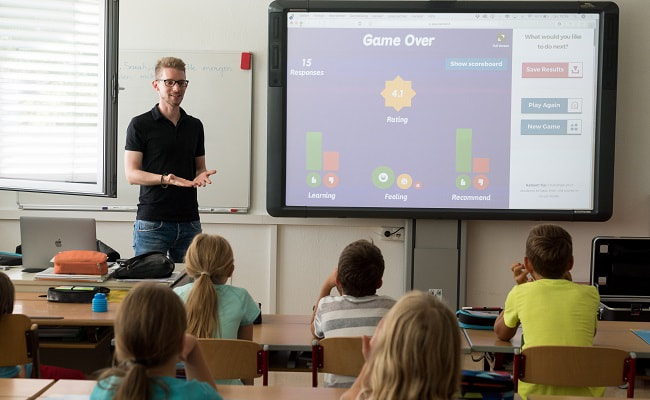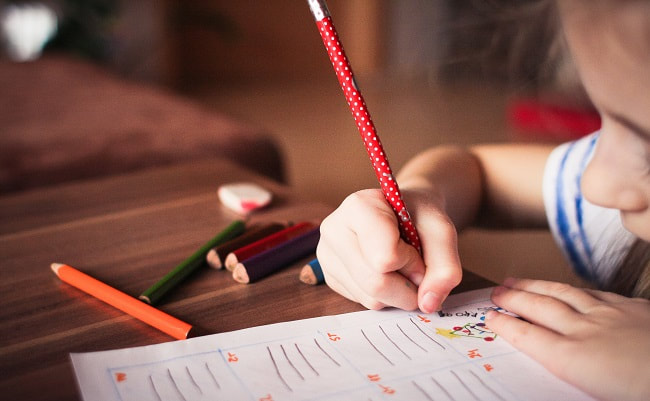Tips for teaching kids with ADHD
By Frances Adlam, Educational Therapist
It has been said that ADHD is not about an inability to concentrate, rather the ADHD brain pays attention to everything. It notices the noises across the road. The change in temperture. The paint peeling off the door. The two insects crawling on the floor. The brain switch to ignore current counterprductive stimuli is often weak. Or non-existent. Or, at the very least, unreliable: sometimes it works and sometimes it does not. I call this: flipping. The ADHD brain is often a brain that is flipping from one distraction to another. From one thought to the next.
The flipping style brain has survived the laws of evolution. explain to the kids I work with, why this is so. A flipping style brain is a creative brain. A flipping style brain is an inventive, problem solver brain. A flipping style brain is a brain that connect the dots. A flipping style brain, in this fast paced, chaotic world, we live in, is the type of brain that will find solutions to the huge issues this world faces, and the smaller ones – from climate change to work place bullying.
But a kid with the flipping style brain of ADHD must be taught how to train their brain to their advantage. When we need the creative ideas rolling on all cylinders, when we need the out of the box thinking, when we need the buzz of bouncing from one idea to the next – the flipping style brain is the best asset we humans have.
Then comes the follow through.
The world of ADHD is full of people who have plenty of ideas, oodles of passion, but get a bit sticky on the follow through. So, there are twenty unfished projects in the garage. There are three unfinished books on the computer. And so on.
I teach children how to control their flipping style brain, so that they can use their brain in the most advantageous way for them.
I teach them when the flipping is a gift. I tell them that all people who have the X factor, and add value in some inventive way to this world, must have a flipping brain. Creativity and new insights are based on the speed of connecting areas of knowledge and thinking – that the non-flipping brain cannot easily do. It is the ADHD superpower.
But a kid needs to know when to turn it on, and how to turn it off. As much as possible.
Because, even when our kid’s passion, motivation and hyper- focus has joined the party, there will be a time, in any project or learning, that there is … the boring part. The dull part. The details that make our kids’ sleepy. And then, Ba-Boom, they’re off onto something else. Moved on. They want to learn something else.
And here we stand, their teachers and their parents – hmmm, we have to finish this first!
So, how do we help our children with the process of learning? First, we must recognize that there is no one size fits all formula here. In my experience, formula and ADHD (and kids generally) just do not go together.
When a kid has ADHD, that is just a part of who they are. It is not all of them. I have worked with hundreds and hundreds of kids with ADHD. Each one has been their own unique self.
Firstly then, we need to tune into the uniqueness of our kid – whether we are a parent, or a teacher. What is my kid interested in? (And I look beyond the obvious.) When does my child stay focused? What is happening when my child is focused? (Are the instructions super clear? Is there calmness and quiet? Is there music? Is my child close to his friends? Has he had a good sleep? Some exercise?). I need to observe, and become a detective to when my child is focused and learning – even if it is only a few moments of each day. These moments give me insight into how his brain works.
I need to support my kid in having insight into when and how their brain works well, and help facilitate environments that nurture this.
Although I have advocated for observing the uniqueness of every child with ADHD, for the needs of this article I will, for now, offer here a list of Key Ideas to help get you started on supporting your kid’s learning:
Start having a play with some of these ideas. Observe, observe, observe. Which work for your child? Which don’t? Have fun. Be playful. There are thousands, upon thousands, of people with ADHD who have experienced success in their learning journey. The commonality will be that they will have learnt how to switch their flipping style brain on, and off.
Find out more about Frances Adlam
It has been said that ADHD is not about an inability to concentrate, rather the ADHD brain pays attention to everything. It notices the noises across the road. The change in temperture. The paint peeling off the door. The two insects crawling on the floor. The brain switch to ignore current counterprductive stimuli is often weak. Or non-existent. Or, at the very least, unreliable: sometimes it works and sometimes it does not. I call this: flipping. The ADHD brain is often a brain that is flipping from one distraction to another. From one thought to the next.
The flipping style brain has survived the laws of evolution. explain to the kids I work with, why this is so. A flipping style brain is a creative brain. A flipping style brain is an inventive, problem solver brain. A flipping style brain is a brain that connect the dots. A flipping style brain, in this fast paced, chaotic world, we live in, is the type of brain that will find solutions to the huge issues this world faces, and the smaller ones – from climate change to work place bullying.
But a kid with the flipping style brain of ADHD must be taught how to train their brain to their advantage. When we need the creative ideas rolling on all cylinders, when we need the out of the box thinking, when we need the buzz of bouncing from one idea to the next – the flipping style brain is the best asset we humans have.
Then comes the follow through.
The world of ADHD is full of people who have plenty of ideas, oodles of passion, but get a bit sticky on the follow through. So, there are twenty unfished projects in the garage. There are three unfinished books on the computer. And so on.
I teach children how to control their flipping style brain, so that they can use their brain in the most advantageous way for them.
I teach them when the flipping is a gift. I tell them that all people who have the X factor, and add value in some inventive way to this world, must have a flipping brain. Creativity and new insights are based on the speed of connecting areas of knowledge and thinking – that the non-flipping brain cannot easily do. It is the ADHD superpower.
But a kid needs to know when to turn it on, and how to turn it off. As much as possible.
Because, even when our kid’s passion, motivation and hyper- focus has joined the party, there will be a time, in any project or learning, that there is … the boring part. The dull part. The details that make our kids’ sleepy. And then, Ba-Boom, they’re off onto something else. Moved on. They want to learn something else.
And here we stand, their teachers and their parents – hmmm, we have to finish this first!
So, how do we help our children with the process of learning? First, we must recognize that there is no one size fits all formula here. In my experience, formula and ADHD (and kids generally) just do not go together.
When a kid has ADHD, that is just a part of who they are. It is not all of them. I have worked with hundreds and hundreds of kids with ADHD. Each one has been their own unique self.
Firstly then, we need to tune into the uniqueness of our kid – whether we are a parent, or a teacher. What is my kid interested in? (And I look beyond the obvious.) When does my child stay focused? What is happening when my child is focused? (Are the instructions super clear? Is there calmness and quiet? Is there music? Is my child close to his friends? Has he had a good sleep? Some exercise?). I need to observe, and become a detective to when my child is focused and learning – even if it is only a few moments of each day. These moments give me insight into how his brain works.
I need to support my kid in having insight into when and how their brain works well, and help facilitate environments that nurture this.
Although I have advocated for observing the uniqueness of every child with ADHD, for the needs of this article I will, for now, offer here a list of Key Ideas to help get you started on supporting your kid’s learning:
- keep things sharp and snap py. Instructions – no more than five. Talk less. Chunk work up
- give clear examples. Models. Templates
- highlight main points. There should be no more than 5 main points. Or they are not main points
- use the senses as much as possible – movement and drama. Always give kids the hands-on resources
- teach how to plan for writing. Keep it snappy. A flipping style brain cannot write logically, without planning. Look at that – flip – ping – the brain has gone off on another topic, and
- teach basic facts in numeracy, and spellings, on the trampoline. The basics are often boring to the ADHD brain. A trampoline keeps your child alert. Awake.
Start having a play with some of these ideas. Observe, observe, observe. Which work for your child? Which don’t? Have fun. Be playful. There are thousands, upon thousands, of people with ADHD who have experienced success in their learning journey. The commonality will be that they will have learnt how to switch their flipping style brain on, and off.
Find out more about Frances Adlam




